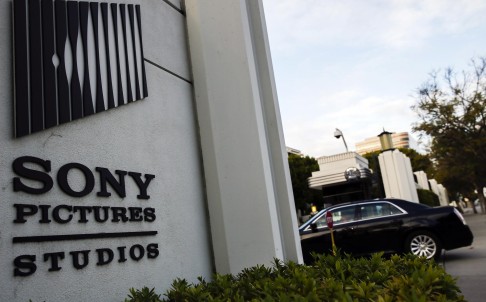US unlikely to retaliate against North Korea with its own cyberattack
Retaliation for Sony likely to be kept quiet to avoid North's desire for public showdown
PUBLISHED : Friday, 19 December, 2014, 10:55pm
UPDATED : Friday, 19 December, 2014, 10:55pm
Bloomberg

Sony studios in Culver City, California. Photo: Bloomberg
If the US decides to retaliate over North Korea's alleged hacking of Sony Pictures Entertainment computers, officials could target the government's financial resources, its illicit drug and counterfeiting operations or the hackers themselves.
But one thing the Obama administration is unlikely to do is unleash a tit-for-tat cyberattack, analysts said. Any eventual US response also will likely be unannounced, in order to avoid feeding the North Koreans' desire for a public showdown with the world's sole superpower.
"What the North Koreans can't stand is when no one pays attention to them," said Joel Brenner, former head of US counterintelligence. "What we do may not be publicly known, but the North Koreans will know who did it."
The attack on Sony last month has quickly erupted into a national security issue for the administration. Law enforcement and intelligence officials have sufficient evidence to determine with high confidence that the North Korean government is responsible, said a person familiar with the probe.
The incident crippled computers at Sony's Culver City, California-based studio, forcing the company to pull its movie The Interview after major theatre chains said they wouldn't show the picture. A group claiming credit for the attack invoked September 11 this week in threatening movie fans with violence if they went out to see the film.
President Barack Obama believes the attack on Sony warrants an "appropriate response" from the US, White House press secretary Josh Earnest said on Thursday in Washington.
Among possible options, the US could launch a covert operation against North Korea's shadowy Unit 121, believed to be responsible for training hackers and that in 2011 launched "distributed denial of service" attacks against 40 South Korean government and military websites, according to an intelligence official.
Even so, the Obama administration may be reluctant to retaliate in kind by releasing US cyberattacks on North Korean computer networks particularly over something such as cancellation of a Hollywood comedy.
Any such attack would involve showing the North Korean government what part of its network vulnerabilities the US had identified, thus allowing defences there to be strengthened, Brenner said.
The US$17 trillion American economy has far more to lose from a cyber slugging match than does North Korea. A cyber attack also would invite additional North Korean strikes against US companies or government installations that spotty US defences might not withstand. The US electric grid and critical infrastructure, such as water plants, are vulnerable to attack.
"Turning off the lights in North Korea is not a big deal," said James Lewis, a cybersecurity specialist with the Centre for Strategic and International Studies in Washington. "It happens every day. So there's not a lot of harm we can do."
Punishing North Korea without at least tacit cooperation from China, its neighbour and chief trade partner, will be difficult. China probably wouldn't help without first seeing strong intelligence supporting US claims of North Korean involvement, said Dean Cheng, a China specialist at the Heritage Foundation in Washington.
"Prospects for cooperation are virtually nil," said Cheng.
Only if the US could demonstrate that the North Korean hacking involved Chinese territory or Chinese internet protocol addresses might China do something, said Cheng. Even then, support for the US would be tepid, he said.
The questions of whether, when and how to retaliate against sponsors of cyberattacks have vexed Washington policymakers. Traditional deterrents don't work as well in the electronic world, where it can be hard to detect who is responsible for an attack and even harder to negotiate with them after they are found out.
"We can't ignore this," said Brenner, now a Washington-based attorney and private security consultant.
"We can't let this go without some retaliation," he said.
